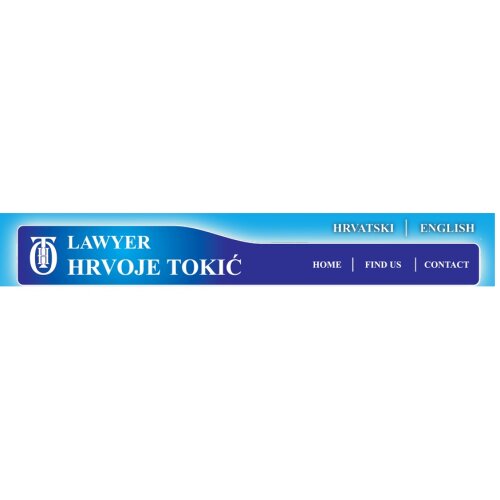Best Oil, Gas & Energy Lawyers in Dubrovnik
Share your needs with us, get contacted by law firms.
Free. Takes 2 min.
List of the best lawyers in Dubrovnik, Croatia
About Oil, Gas & Energy Law in Dubrovnik, Croatia
Dubrovnik, a prominent coastal city in Croatia, is part of a nation where the energy sector is a crucial component of the economy. Croatia's energy policy focuses on diversifying energy sources, improving energy efficiency, and increasing the share of renewable energy in line with European Union directives. This encompasses legal and regulatory frameworks governing oil, gas, and broader energy matters, applicable to both domestic and foreign entities. Regulations exist to ensure sustainable development, environmental protection, and energy security.
Why You May Need a Lawyer
Legal assistance in the field of Oil, Gas & Energy in Dubrovnik, Croatia may be required in various scenarios, including:
- Contract Negotiations: Drafting and negotiating contracts for exploration, production, and distribution.
- Regulatory Compliance: Ensuring adherence to national and EU regulatory requirements.
- Environmental Concerns: Addressing ecological impact assessments and implementing mitigation measures.
- Dispute Resolution: Mediation or litigation involving commercial or environmental disputes.
- Investment and Licensing: Navigating the legalities of investments and acquiring necessary licenses.
Local Laws Overview
Croatia's energy sector is primarily governed by national legislation, with important roles played by both national and European regulatory frameworks. Key aspects include:
- Permitting and Licensing: Procedures for obtaining licenses for exploration and exploitation of energy resources, governed by the Ministry of Environment and Energy.
- Environmental Protection: Laws requiring environmental impact assessments and adherence to strict environmental standards.
- Renewable Energy Support: Policies promoting renewable energy sources as part of Croatia's commitment to EU targets.
- Energy Market Regulation: Regulation of energy prices, market operations, and third-party access to infrastructure.
Frequently Asked Questions
What are the major sources of energy in Croatia?
Croatia relies on a mix of hydrocarbon (oil and gas) and renewable sources, including hydropower, wind, and solar energy.
Are foreign companies allowed to invest in the energy sector in Croatia?
Yes, foreign companies can invest, but they must comply with Croatian and EU laws and regulations.
How can I obtain a license for oil and gas exploration?
Licenses are granted by the Ministry of Economy and Sustainable Development following a public tender process.
What role does the EU play in Croatian energy law?
The EU significantly influences Croatian energy law, particularly in sectors like environmental protection, renewable energy incentives, and energy efficiency.
What is Croatia's stance on renewable energy?
Croatia actively supports the development of renewable energy in alignment with EU goals for sustainability and emission reductions.
Do I need an environmental impact assessment for energy projects?
Yes, most energy projects require an environmental impact assessment to address potential ecological impacts.
What are the penalties for non-compliance with energy regulations?
Penalties can include fines, suspension of operations, or revocation of licenses, depending on the severity of the violation.
How is energy consumption regulated in Dubrovnik?
Energy consumption is regulated through national laws that promote energy efficiency and consumption reporting.
Who regulates the energy market in Croatia?
The Croatian Energy Regulatory Agency (HERA) is the primary body responsible for overseeing the energy market.
How can disputes in the oil, gas, and energy sectors be resolved?
Disputes can be resolved through negotiation, mediation, arbitration, or court litigation depending on the terms agreed upon by the parties involved.
Additional Resources
For more information and assistance, consider the following resources:
- Ministry of Economy and Sustainable Development: Overseeing energy policies and licensing.
- Croatian Energy Regulatory Agency (HERA): Regulates the energy market and consumer interests.
- Croatian Environmental Protection and Energy Efficiency Fund: Supports projects in energy efficiency and renewable energy.
- European Commission Representation in Croatia: Provides information on EU energy policies and legislation.
Next Steps
If you require legal assistance in the Oil, Gas & Energy sector in Dubrovnik, Croatia, consider the following steps:
- Consult with a specialized energy lawyer experienced in Croatian and EU energy law.
- Research local law firms with expertise in environmental law and regulatory compliance.
- Engage with industry associations for networking opportunities and industry insights.
- Visit local government offices or the Croatian Chamber of Economy for guidance on legal requirements.
Lawzana helps you find the best lawyers and law firms in Dubrovnik through a curated and pre-screened list of qualified legal professionals. Our platform offers rankings and detailed profiles of attorneys and law firms, allowing you to compare based on practice areas, including Oil, Gas & Energy, experience, and client feedback.
Each profile includes a description of the firm's areas of practice, client reviews, team members and partners, year of establishment, spoken languages, office locations, contact information, social media presence, and any published articles or resources. Most firms on our platform speak English and are experienced in both local and international legal matters.
Get a quote from top-rated law firms in Dubrovnik, Croatia — quickly, securely, and without unnecessary hassle.
Disclaimer:
The information provided on this page is for general informational purposes only and does not constitute legal advice. While we strive to ensure the accuracy and relevance of the content, legal information may change over time, and interpretations of the law can vary. You should always consult with a qualified legal professional for advice specific to your situation.
We disclaim all liability for actions taken or not taken based on the content of this page. If you believe any information is incorrect or outdated, please contact us, and we will review and update it where appropriate.








